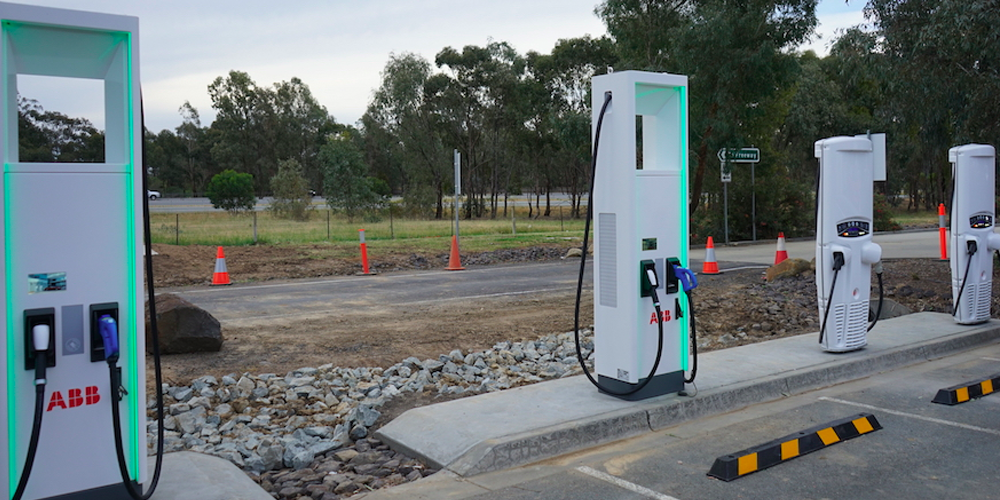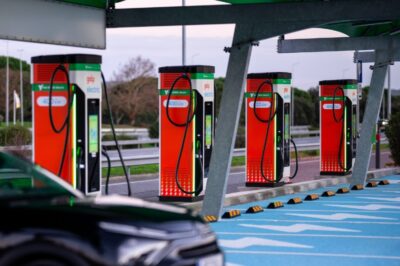New South Wales promotes EVs down under
In Australia, the New South Wales government has just announced a package of A$490 million (around 309 million euros) to increase the uptake of EVs. We use the news to take a closer look at initiatives on Australia’s east coast.
The package now announced includes a waiver on stamp duty and rebates for zero-emission vehicles, $33 million for the purchase of electric vehicles for NSW government fleets, as well as $171 million for public charging infrastructure.
In its new zero- and low-emission vehicle package, the New South Wales government will remove stamp duty from battery-electric and hydrogen fuel cell vehicles that cost less than $78,000 (around 49,000 euros) by September this year. Vehicles costing less than $68,000 (around 43,000 euros) will also be granted a $3000 rebate. This rebate will be given to the first 25,000 vehicles sold in NSW.
Charging infrastructure in a very big country
To establish an ultra-fast charging network within reach of all major highways across the state government will spend 131 million Australian dollars (around 83 million euros or 98 million US dollars). Another $20 million to be granted for “destination chargers” in regional areas, while $20 million for charging infrastructure at public transport hubs on land owned by Transport for NSW. This will no doubt be required for the state’s ambitious plans to electrify all buses in Sydney, the state’s capital.
The charging infrastructure funding aims to provide households in NSW with limited off-street parking. Charging points will be installed at 100km intervals along major highways and 5km intervals on major roads in Sydney.
State governments in Australia have been concerned with the cost of building electric vehicle charging infrastructure and hydrogen refuelling infrastructure in the country marked by vast distances between cities and enormous suburban sprawl within them. Controversially, the Victorian state government introduced a road tax specifically for zero-emission vehicles to make up for the loss in revenue in fuel taxes. At the same time, Queensland announced today the expansion of its Electric Super Highway to lead EV drivers further inland.
Now, the NSW government seems to have found a more workable compromise: the previously mooted road user tax for zero- and low-emission cars (called a distance-tax) will be delayed for six years or until new EVs made up 30% of new car sales. The NSW Treasurer said: “A user charge is where the future lies but what’s important is that we promote, not impede, the take-up of electric vehicles.” The NSW distance-based charge will amount to 2.5 cents a kilometre for EVs and 2 cents for plug-in hybrids). This is the same price as the much-criticised Victorian model that has already been introduced.
Once a distance-based tax is implemented in NSW, stamp duty will be abolished on all-electric vehicles and plug-in hybrids. It remains to be seen if this double impact evokes the kind of EV uptake stagnation that happened in China when government subsidies were removed, prompting the Chinese government to reintroduce these again in different forms.
With the $33 million in funding for the transition of New South Wales government fleets off fossil fuels, the aim is to ensure a supply of second-hand zero- and low-emission vehicles on the market when these are replaced after five years.
Slow progress on electric vehicles so far
With the announcement of the support for zero- and low-emission vehicles, several superlative statements were made, such as NRMA Group chief executive Rohan Lund who said the new strategy made the NSW government a “national and global leader” in the transition to electric vehicles. Environment Minister Matt Kean said: “We’re charging up the nation to make NSW the Norway of Australia when it comes to electric vehicles.” While it is true that Australia is characterised globally with the unusually rapid uptake of new technologies in general, this has so far not been the case with electric vehicles, which currently make up less than 1% of vehicles on Australian roads (In May this year in Norway, the share of purely electric cars in new passenger car registrations was 60.4 per cent).
The slow transport transition off fossil fuels has largely been hampered by the Australian Prime Minister, Scott Morrison, who infamously said that EVs would ruin the Aussie weekend. Now state governments are taking up the gauntlet and implementing their own transport transition policies.
Follow the money: Australia’s mining wealth
Both at a federal and state level, Australia is perhaps being swayed by another rather decisive factor. Australia’s wealth is largely built on mining. Among other resources, Australia produces 30% of global coal exports. However, the global EV boom has highlighted different mining opportunities, namely lithium, cobalt and nickel among other materials.
This fact has not been lost on the NSW government, whose strategy has also identified the potential of future mining expansion within the state for the minerals needed in the production of batteries.“By acting now to identify and promote opportunities to mine and value-add by downstream processing of cobalt, nickel and rare earth elements, regional NSW can benefit from these changes in global demand,” the NSW government report says.





1 Comment